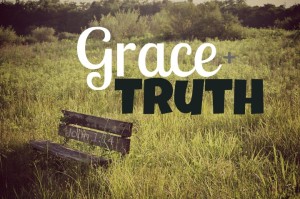
My first two blogs in this little three-part series addressed books that have helped me frame a biblical understanding of the issue, and then books by same-sex attracted folks who have wrestled to follow Christ as one who is same-sex attracted. Today, I want to mention three books that have helped me in my quest to frame a personal and corporate response. In other words, who must I be and who must we be as the church as we live, move, and breath in today’s world? yes, there are more helpful books than these. . . I know that. But these are three I have already read. Others will be mentioned in coming months as I work through the remaining stack on my desk.
The oldest of these three books was written by one of my church history professors at Gordon-Conwell Theological Seminary, Dr. Richard Lovelace. A great professor with a deep passion for Christ, people, and the church, Lovelace was active and involved in the Presbyterian Church USA, the denomination of my youth and one where I served as a youth pastor post-seminary. My dad was a pastor in this mainline denomination. Many people know that the PCUSA just voted in the last few weeks to ordain practicing homosexuals, and move that has continued to cause division and flight from the denomination. My experience was in conservative/evangelical PCUSA churches. What most people don’t realize is that back in the 1960s and 1970s there were debates raging in the PCUSA over homosexuality. Lovelace was a minority opinion member of the United Presbyterian Task Force of Homosexuality. In 1978, he wrote Homosexuality and the Church, a book that I pulled off my father’s shelf a few years ago and just read earlier this year. Now out of print but still obtainable, the book offers a well constructed look at the church’s traditional stance through history, new approaches to homosexuality, and evaluation of the theological arguments, a look at the biblical data, and some very helpful guidelines for the church as it ministers to homosexuals. I wish I had discovered this book much earlier in my ministry. It’s almost prophetic in nature. Still, it speaks clearly to us today and is one of the most helpful books I’ve read. I’ll be re-reading it again soon.
Second, there’s John Stott’s little 1998 book, Same-Sex Partnerships: A Christian Perspective. Stott is one of my go-to theological mentors who I’ve come to trust in terms of his view of Scripture, his hermeneutic, and his thoroughness. Stott effectively and concisely argues that marriage is to be between one man and one woman, while at the same time offering a clear and necessary reminder (one we all need to hear) that every kind of sexual activity and relationship that deviates from God’s order and design is displeasing to Him.
Finally, there’s a brand new book by Peter Hubbard that speaks so clearly and practically to our times. Love Into the Light: The Gospel, The Homosexual, and The Church, is a biblically-sound and pastorally-driven book that can serve as a guidebook for us as individuals and as the church. Hubbard has found that sweet spot where grace and truth come together in a way that I believe brings great honor and glory to God. Hubbard writes, “Partial truths, no matter how beautiful they sound, act as a poison to the Christian community. The freedom of grace, for example, is cancerous if it does not generate purity. And the call to holiness is malignant if it is not embedded in God’s empowering love.”
Those words from Hubbard are good and necessary words. It’s my prayer that this delicate balance between grace and truth would be struck in my life, in our youth ministry world, and in our churches.